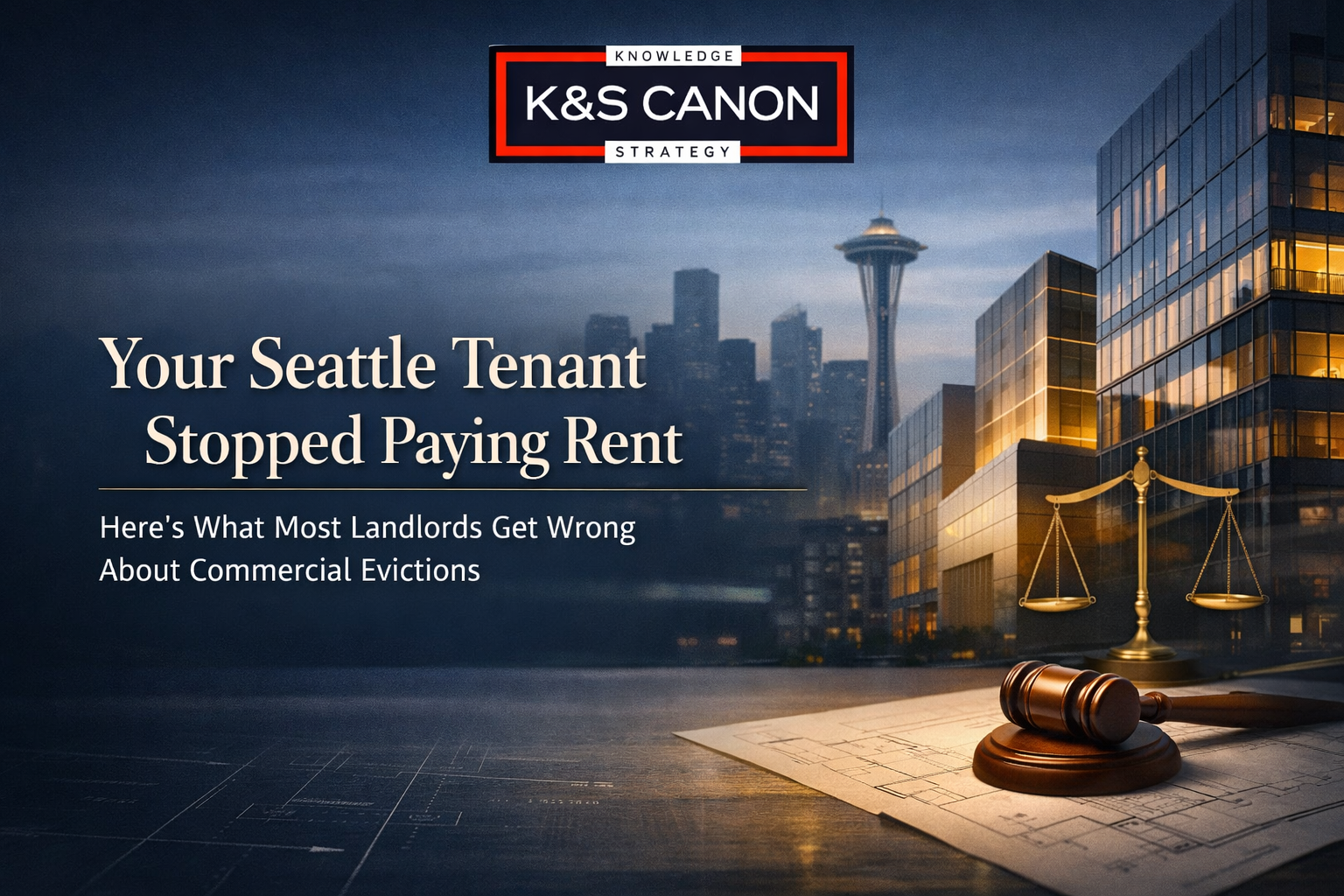The Hidden Costs of Commercial Evictions: What Seattle Property Owners Need to Know

Commercial evictions cost far more than most property owners anticipate. Landlords are regularly surprised by expenses they never considered when deciding whether to pursue eviction.
Knowing the true financial impact helps you make better decisions about when eviction makes economic sense versus other alternatives.
Timeline Reality: Much Longer Than Expected
Commercial evictions in Seattle take significantly longer than most landlords may anticipate. Even uncontested cases typically require 4-6 months starting from the initial notice to actual tenant removal.
Washington law requires a 3-day notice for non-payment of rent in commercial cases, and 10 days for other lease violations. However, even when leases allow immediate termination for non-payment, landlords must still provide the statutory three-day "pay or vacate" notice to use the expedited eviction process.
Court filing and summons service add another 2-4 weeks. If tenants contest the eviction, discovery and motion practice extend the timeline significantly.
The biggest surprise comes at the end: King County Sheriff's office currently needs approximately 90 days to serve and enforce writs of restitution due to staffing shortages. This means even after winning your case, you'll likely wait months before the tenant actually leaves.
During this entire period, you're not collecting rent while continuing to pay your mortgage, taxes, insurance, and other carrying costs.
Consider a tenant paying $8,000 monthly who stops paying entirely. A six-month eviction process costs $48,000 in lost rent before any legal fees.
Legal Costs Scale Quickly
Simple, uncontested evictions might cost $4,000-$7,000 in attorney fees. Once tenants hire counsel and contest the action, costs can escalate to $15,000-$25,000 or even more.
Court filing fees are $200 for commercial evictions (plus a $40 surcharge), totaling $240. Process service costs $100-$200 per attempt, and some tenants prove difficult to serve, requiring multiple attempts. Sheriff's fees for actual removal add several hundred more.
Appeals, while uncommon in commercial cases, can add months and thousands in additional legal fees. Even when you win, collection on judgments against financially distressed tenants may prove extremely difficult.
Post-Eviction Reality
Winning doesn't necessarily end your costs. Many tenants leave properties damaged or requiring significant cleanup. Additionally, you'll need time and money to prepare the space for new tenants, even without damage.
Marketing and re-leasing costs include broker commissions, potential tenant improvements, and additional vacancy periods while finding replacement tenants. In Seattle's current market, this can add months of lost revenue.
When Eviction Makes Financial Sense
Sometimes eviction is clearly necessary: tenants who've stopped paying with no realistic ability to catch up, those violating lease terms that affect property value, or businesses that have obviously failed.
But gray area circumstances require careful analysis. A tenant three months behind with a solid business and realistic payment plan might cost you more to evict than to work with. It’s possible for landlords to spend $25,000 evicting tenants and over $18,000 in back rent, then have to wait six months to find replacement tenants.
Before filing, calculate total costs: legal fees, lost rent during proceedings, property preparation, re-leasing expenses, and your time. Compare this to alternatives like negotiated settlements or structured payment plans.
Prevention Strategies
Thorough tenant screening prevents most problems, though it's not foolproof. Regular communication helps you spot issues early. Personal guarantees in leases provide additional collection options. Larger security deposits cushion unpaid rent losses.
Including attorney fee provisions that require tenants to pay your legal costs improves your position when eviction becomes necessary, though bear in mind that collection isn't guaranteed.
Making Informed Decisions
Every eviction situation involves different factors: the tenant's financial condition, money at stake, property condition, and local market conditions. Sometimes pursuing eviction aggressively makes financial sense. Sometimes negotiating a settlement or payment plan proves smarter for your situation.
The key is making decisions based on accurate cost information and realistic timelines rather than frustration with problem tenants.
Commercial evictions involve complex procedures and significant financial consequences. Decisions made early in the process affect both your legal position and final costs. Recent staffing issues at the sheriff's office have extended timelines considerably, making the cost-benefit analysis even more important.
If you're dealing with a problem commercial tenant in Seattle, consulting with experienced counsel helps you make informed decisions about whether eviction truly serves your financial interests.
Disclaimer: This information is for educational purposes only and does not constitute legal advice. Every legal situation is unique. If you’re considering a commercial eviction, consult with a qualified commercial real estate attorney to discuss your specific circumstances and protect your rights. Laws and procedures vary by jurisdiction and change over time.




